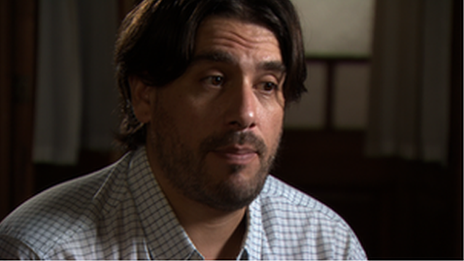Argentina museum row highlights divisions over military rule
- Published
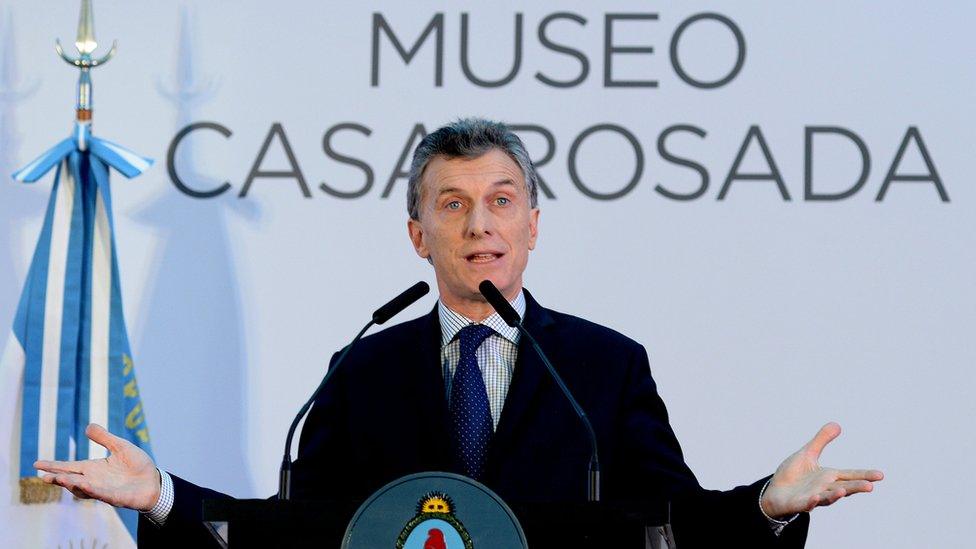
Newspaper La Nacion said it hoped President Macri's election would spell an "end to years of revenge"
"An end to years of revenge," is what Argentine newspaper La Nacion hoped the presidency of Mauricio Macri would bring.
Mr Macri, a centre-right politician, was elected last October after 12 years of "Kirchnerismo", the term used to described the left-wing political movement founded by his predecessors in office, Cristina Fernandez de Kirchner and her husband, Nestor Kirchner.
The revenge that La Nacion, Argentina's leading right-wing daily, was referring to is the prosecution of military officials accused of committing human rights violations under military rule from 1976 to 1983.
This, the paper argued, should now stop under President Macri.
Mr Macri said that there would be no impunity, but some Argentines fear that his government would rather like to forget what happened under military rule.
How the past should be remembered is an issue of heated debate in Argentina, and at its centre are the country's museums.
'One-sided view'
One of the first acts of the new government was to temporarily close a museum displaying the history of Argentina's presidents since the country's independence in the 19th Century.
Luciano de Privitellio, the director of President Macri's cultural programmes, says that under President Fernandez, more than two thirds of the museum were dedicated to exhibits just on Ms Fernandez's late husband, President Nestor Kirchner.
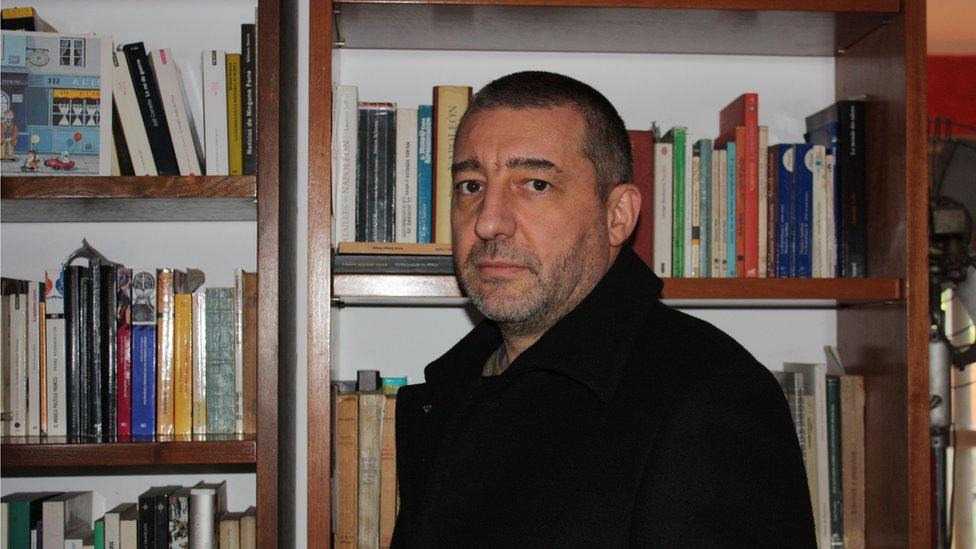
Luciano de Privitellio says some of the exhibits in the museum in the presidential palace were not balanced
He also says that the museum, which is located in the presidential palace, showed a very one-sided view of history.
"The museum portrayed a historical view that was biased, supporting one political faction," he said.
"It's a type of history which is very concerned with labelling people as good and bad. We don't think a museum should judge who is good and who is bad; that should be up to the visitors," he adds.
He says that this black-and-white view of history was most obvious in the exhibits relating to Argentina's military rule.
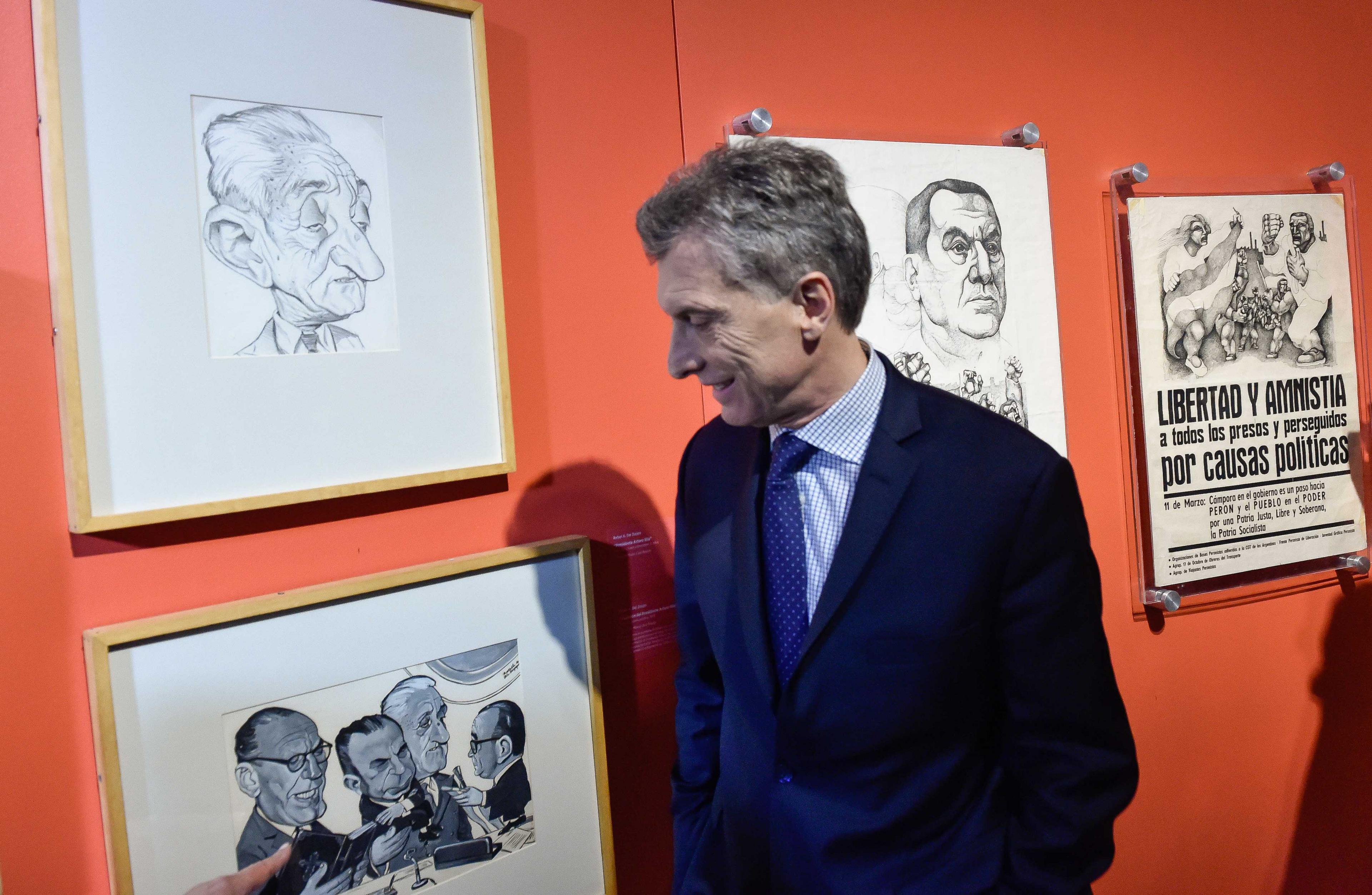
President Macri re-opened the museum in the presidential palace after its temporary closure
But he says, what people did then cannot be easily judged now.
"The dictatorship of the 1970s was a very complex process with all sorts of very strange complicities," Mr Privitellio says.
"But Nestor Kirchner and Cristina Fernandez arbitrarily decided who was good and bad today based on what people supposedly did in the 1970s."
Sensitive site
But it is not just the changes to the museum in the presidential palace that have caused debate.
One of the most haunting places of remembrance in Buenos Aires is the former naval school, the site of a notorious torture centre under military rule.
The naval school was turned into a museum under President Kirchner.
Displayed outside it are black-and-white photographs of people forcibly disappeared under military rule.
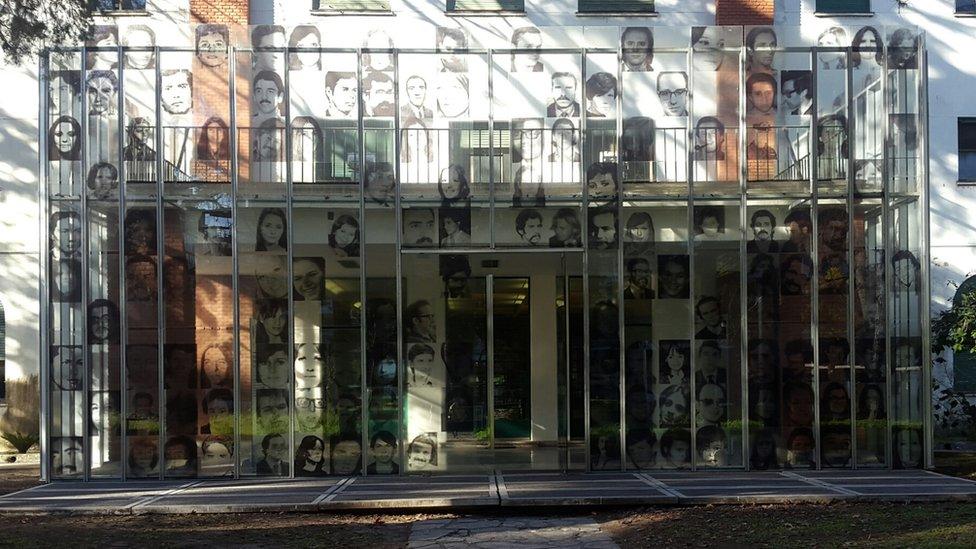
The former naval school is part of a cluster of museums which form a "Site of Memory" dedicated to the victims of military rule in Argentina
Argentina's Secretary for Human Rights, Claudio Avruj, told the BBC that while there were no plans to change the building, there was a proposal - still under consultation - to remove the perimeter fence surrounding the wider remembrance site.
He says that the idea is to allow a larger number of human rights organisations to use the site.
"We want to make it accessible to more people and turn it into a Human Rights Civic Centre that will be a model for the country and an inspiration to the region."
Estela de Carlotto's daughter is one of the many pregnant women who under military rule were "disappeared". She was killed after giving birth to a baby boy.
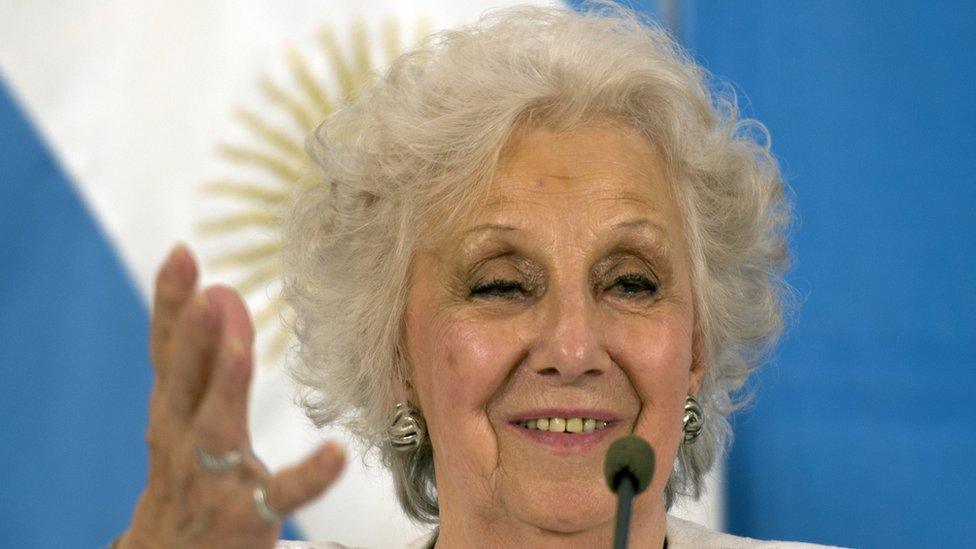
Estela de Carlotto heads the Grandmothers of the Plaza de Mayo, a group which seeks to find Argentina's stolen babies
The baby boy was given away for adoption and Ms de Carlotto was only re-united with him two years ago after a search lasting decades.
Read more about Ms de Carlotto's story
She says she is alarmed by the suggested changes at the memorial site and the plans to invite other organisations and not just relatives of victims to use the site.
"They want to remove the [metal] bars and all the security on the site and transform it into a campus or civic centre," she say.
"This place is a historical site that should not be touched at all. It should be left just as it is," she argues.
Dealing with the past
The debate over the museums reflects wider political divisions in Argentina about how those who committed crimes in the past should be treated.
Some accuse former President Fernandez of using the memory of military rule for her own political ends and creating a personality cult around her late husband.
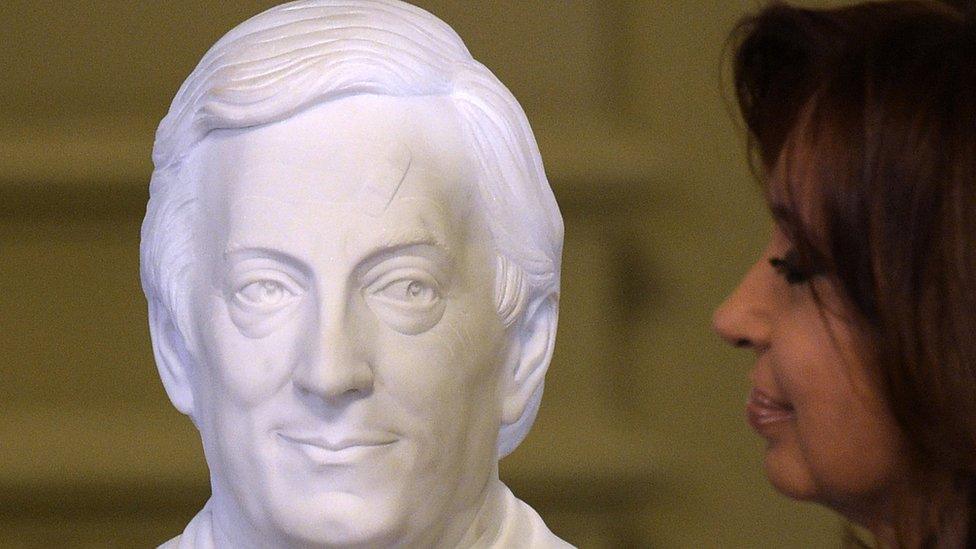
President Fernandez is accused by some of creating a personality cult around her husband, former President Nestor Kirchner
But others say that her government and that of President Kirchner did more to bring human rights abusers to justice than any other country in the world.
Amnesty laws were overturned leading to the prosecution of dozens of military officials and civilians for the torture and murder of thousands of people under military rule.
Hector Pedro Recaldo, a member of Congress for the centre-left Victory Front coalition, is among those who believes that prosecutions of military officials for crimes committed under military rule will stall under President Macri's government.
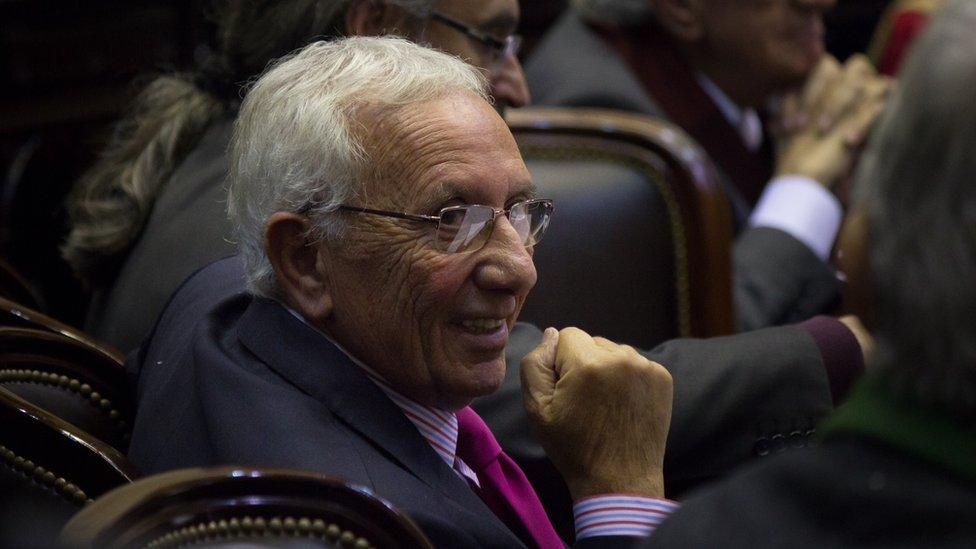
Hector Pedro Recaldo fears that military officials suspected of crimes will no longer be prosecuted
Human Rights Secretary Claudio Avruj insists "there is absolutely no possibility" that prosecutions will stop.
"Memory, truth and justice is government policy," he says.
But Mr Recaldo says that his proposal for a congressional commission to investigate companies that collaborated with the military junta was blocked by government supporters in Congress.
"There are calls from some sectors of society to forget the past and to focus on reconciliation," he says.
"What we want is not vengeance or revenge, but justice," he adds.
- Published10 December 2015

- Published19 November 2015
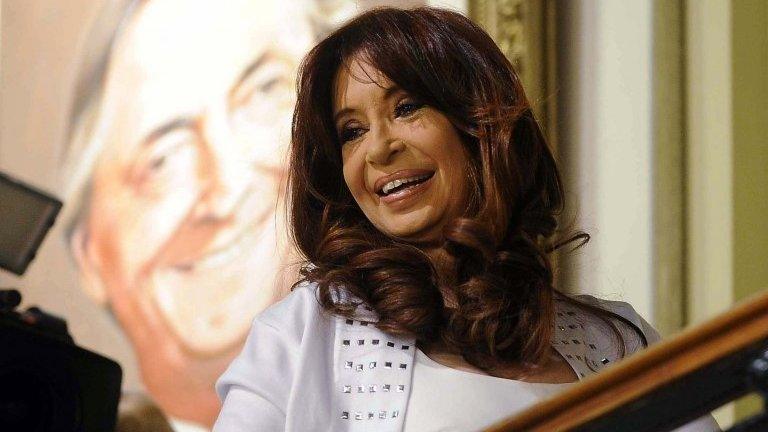
- Published17 May 2013
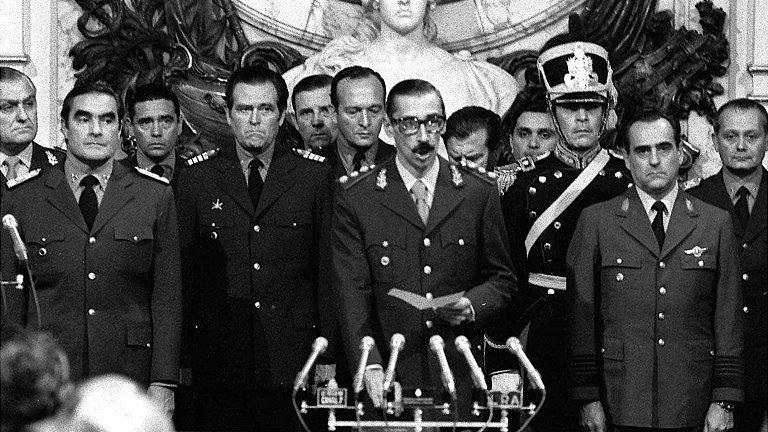
- Published4 April 2013
